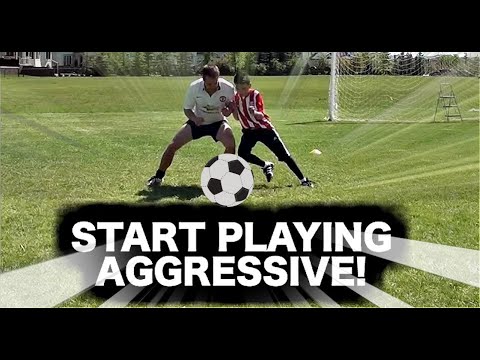What States Are Not Playing High School Sports?
Contents
A list of states that have decided not to play high school sports this fall due to the COVID-19 pandemic.
Checkout this video:
httpv://youtu.be/https://www.youtube.com/shorts/SQVsgflqLk0
Introduction
The winter high school sports season is off to a late start in some states due to the coronavirus pandemic.
As of November 2020, the following states have postponed or canceled their high school winter sports seasons: Alaska, California, Colorado, Hawaii, Idaho, Illinois, Indiana, Iowa, Kansas, Michigan, Minnesota, Missouri, Montana, Nebraska, Nevada, New Mexico, New York, North Dakota, Oregon, South Dakota, Utah, Washington and Wyoming.
Some states are allowing high school winter sports to take place with modifications and precautions in place. These states include: Arizona, Arkansas, Florida, Georgia, Kentucky Louisiana Maine Maryland Massachusetts Mississippi Ohio Oklahoma Pennsylvania Rhode Island Tennessee Texas Virginia West Virginia.
Reasons for states not playing high school sports
While some states are moving ahead with high school sports, others are putting a halt to it. The reasons for this vary from state to state, but often come down to a combination of factors. Let’s take a look at some of the reasons why states are not playing high school sports.
Lack of funding
One of the main reasons that states are not playing high school sports is lack of funding. In order to have a successful high school sports program, there needs to be enough money to provide for equipment, uniforms, and travel expenses. Unfortunately, many states are facing budget cuts that make it difficult to allocate funds for high school sports.
Another reason why some states are not playing high school sports is because of concerns about safety. With the increasing reports of concussions and other injuries in young athletes, some parents and officials are hesitant to allow high schoolers to participate in contact sports. Additionally, schools may not have adequate insurance coverage in case of an injury.
Lastly, some states have simply decided that high school sports are not a priority. In many cases, schools are struggling to provide a basic education and do not have the resources to invest in a sports program.
Lack of interest
High school sports are immensely popular in the United States. Football and basketball, in particular, generate a lot of excitement and interest among students, parents, and community members. However, there are a handful of states that have chosen not to participate in high school sports.
There are a number of reasons why states might not offer high school sports. One reason is lack of interest. In some states, high school sports simply aren’t as popular as they are in other parts of the country. This can be due to a number of factors, including the climate (it’s hard to play football in Alaska!), the availability of other recreational activities, and simply the demographics of the state’s population.
Other reasons for why states might not offer high school sports include financial considerations and concerns about liability. Some state legislatures have decided that funding high school sports programs is not a priority, and have chosen to cut those programs from their budgets. And with the ever-increasing costs of lawsuits, some states have decided that it’s simply not worth the risk to allow their students to participate in high school sports.
Safety concerns
The National Federation of State High School Associations (NFHS) released guidelines in August encouraging schools to delay fall sports until the spring.
But as some schools across the country forge ahead with football and other fall sports, many are wondering why some states are not playing high school sports.
The answer is complicated, but most state athletic associations said they are following the guidance of health officials in their respective states.
“We respect the decisions made by each state association,” said Mark Krebs, executive director of the NFHS. “Our membership provides us with a great diversity of opinion on how to deal with this pandemic, and we continue to support their efforts.”
Here are some of the reasons why states are not playing high school sports:
-To slow the spread of COVID-19: As positive cases of the coronavirus continue to surge in many parts of the country, states are taking precautionary measures to prevent further spread of the virus — including delaying fall sports.
-Lack of access to testing: In order for student-athletes to participate in high school sports, they must first be cleared by a medical professional. But with testing scarce in many parts of the country, it’s difficult for schools to ensure that all athletes can be properly screened before participating in games or practices.
-Shortages of PPE and other supplies: Masks, gloves and other Personal Protective Equipment (PPE) are crucial for keeping athletes safe from COVID-19. But shortages of PPE and other supplies have made it difficult for schools to properly protect their athletes.
-Concerns about liability: Many schools and state athletic associations are worried about potential lawsuits if an athlete were to contract COVID-19 while participating in a high school sport.
Consequences of not playing high school sports
Since the COVID-19 pandemic hit the United States, many high school sports have been cancelled. Some states are now starting to allow high school sports to resume, but many states are still not playing. There are a few reasons for this, but the main reason is that the states are not sure if it is safe to do so. This has caused a lot of debate among people. Some people think that it is not safe to play high school sports right now and that the states are doing the right thing by not playing. Other people think that the states should be playing high school sports because it is important for the students to have something to do and to stay active.
Decreased sense of community
High school sports play an important role in many communities. They provide a sense of community for both the players and the fans. When high school sports are cancelled, it can have a negative impact on the sense of community in a town or city.
Without high school sports, there are fewer opportunities for people to come together and support their local teams. This can lead to a decrease in civic pride and a feeling of isolation among residents. In addition, cancelled games and seasons can have a financial impact on the local economy, as businesses that rely on game-day revenue suffer.
Decreased sense of school pride
Athletics play an important role in many high schools. In addition to providing students with an opportunity to stay physically active, school sports teams can also promote a sense of school pride and community among students, staff, and parents.
However,due to the ongoing COVID-19 pandemic, a number of states have decided to cancel or postponetheir high school sports seasons. This decision has caused controversy among students, parents, and coaches, as many believe that canceling sports will lead to a decrease in school spirit and sense of community.
Research on the matter is inconclusive, but some studies suggest that canceling high school sports does indeed lead to a decrease in school pride. One study found that when a state’s high school football season was canceled due to a shortage of players, there was a significant decrease in the number of people who reported feeling proud of their state’s team.
Other research has shown that alumni of schools with successful sports teams are more likely to donate money to their alma maters than those who attended schools with less successful teams. This suggests that canceling high school sports could have long-term effects on a school’s ability to raise money from its alumni base.
In addition, canceling high school sports could also lead to a decline in student enrollment. A study of Division I colleges found that schools with successful sports teams were more likely to experience an increase in applications and enrollments than those without successful teams. While it is unclear if this same effect would occur at the high school level, it is possible that canceling high school sports could lead to a decline in student enrollment over time.
Lower grades
There are a number of consequences that can result from not playing high school sports. One of the most obvious is that your grades may suffer. Without the structure and discipline that comes with being a part of a team, it can be all too easy to let your grades slip. This can have a major impact on your future, as it can make it harder to get into college or get a good job.
In addition to lower grades, not playing high school sports can also lead to weight gain. With less opportunity to be active, you may find yourself gaining weight, which can lead to a host of health problems down the road. Finally, not playing sports can also lead to social problems. Without the social interaction that comes with being part of a team, you may find yourself feeling isolated and alone. This can lead to depression and other mental health issues.
Conclusion
from the list of 50 states, only Alaska, Montana, Oregon, and Rhode Island have not yet decided whether or not to allow high school sports to be played this Fall.
This leaves 46 states that have either decided to allow high school sports or are still considering it.
The decision about whether or not to play high school sports this Fall is a difficult one, as there are pros and cons to both sides of the argument. However, ultimately, it is up to each individual state to decide what is best for their students, athletes, and families.







